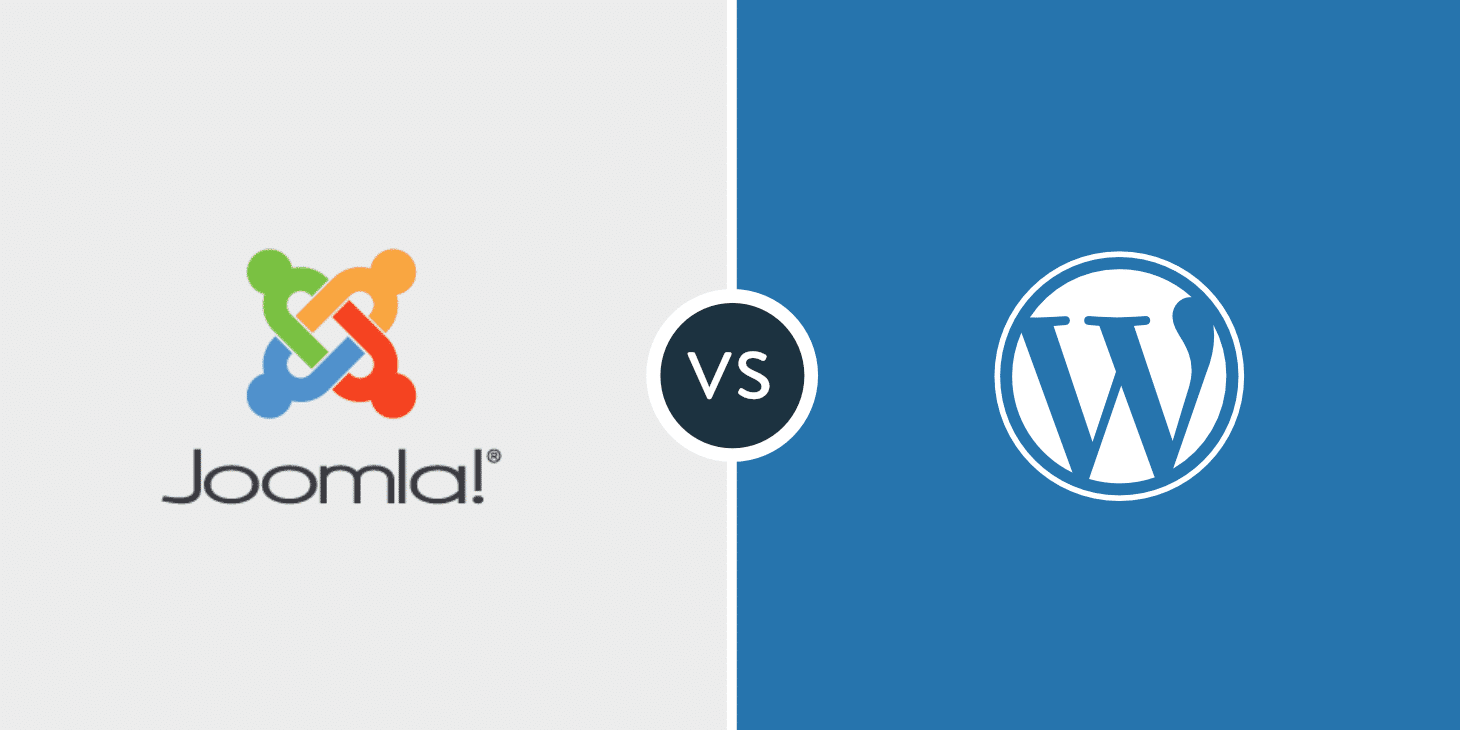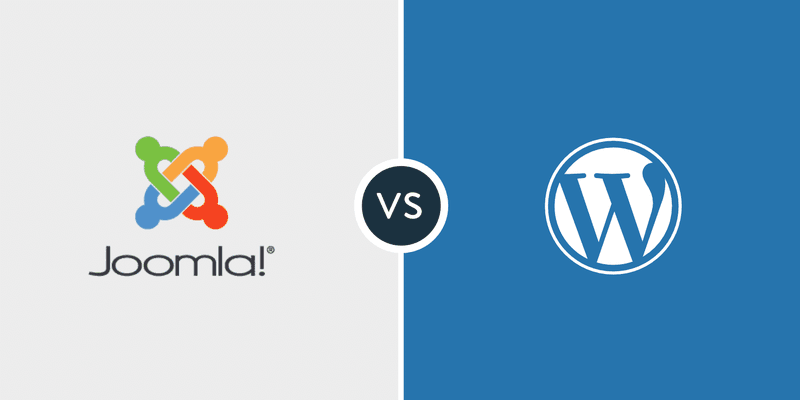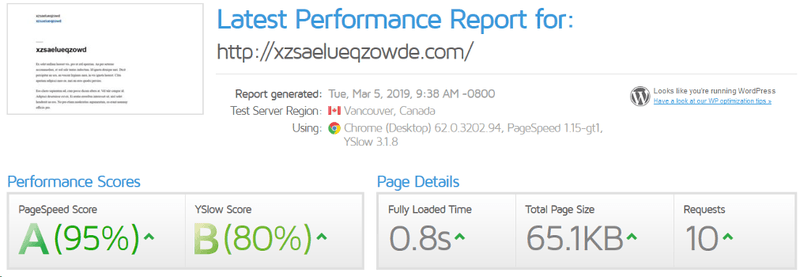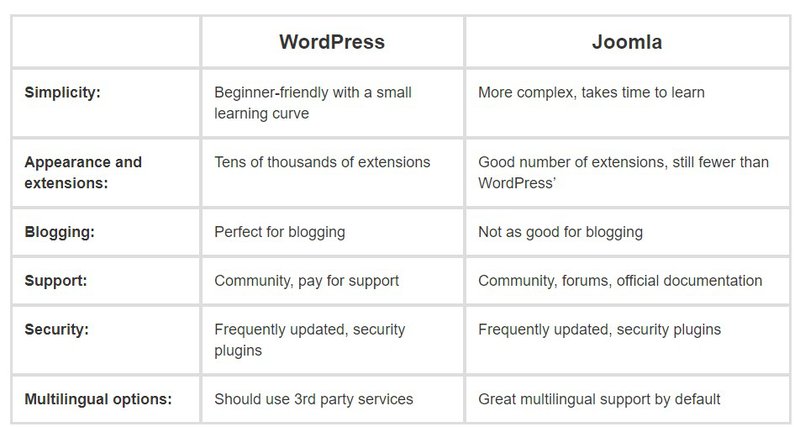
Joomla and WordPress are both popular CMS software. This article covers a thorough Joomla vs. WordPress comparison. So if you are confused about which CMS you should choose for your website or blog, I expect this article will be useful for you. However, if it all still seems confusing, you can always Contact us at Polyuno and our team of experts will build your website for you.

Before we dive into the comparison, let us get a basic understanding of what a CMS is. CMS stands for Content Management System. A CMS software helps its users who don't possess the specialized technical knowledge to create, manage, and modify content on a website. In simple terms, a content management system (CMS) is an apparatus that helps you build a website or a blog without having to build it up from scratch. With the help of CMS, you can create and run a website without having any prior knowledge about code.
CMS focuses on all the infrastructural details of your website, including creating web pages, storing images, etc. This way, you can focus on expanding your business or website, the content you put out, and building long-lasting customer relationships.
WordPress was launched in 2003. In technical terms, WordPress is an open-source content management system. It is licensed under GPLv2 so that anyone can alter the software for free. In layman's terms, WordPress is the easiest, most popular way for you to create and customize your blog or website. WordPress is used to run about 38% of all the websites that exist on the internet. Yes, the number really is that large. Users can use WordPress in over 60 different languages. You can choose your desired language through a plugin.
You can download WordPress from here: https://wordpress.org/download/.
Like WordPress, Joomla is also an open-source content management system software. It was launched in 2005 and is regarded as the second most popular CMS after WordPress. Joomla is written in PHP and uses the MySQL database to store data. Joomla only covers 2.9% of the market share of CMS. Yes, Joomla is the second most popular CMS on the market after WordPress despite having such a small market share. Joomla offers 75 different languages to its users, and you don't need any form of plugins to access or choose a specific language.
You can download Joomla from here: https://downloads.joomla.org/.
Now that you have been introduced to the two most popular CMS available on the market, we move on to the actual Joomla vs. WordPress comparison.
Joomla and WordPress are compared upon a few basic criterions.
It doesn't matter if you are a seasoned web developer or someone who is just trying out web development for the first time; we all want tools that are simple and easy to use. So one of the first things we compared between Joomla and WordPress is their ease of use.
WordPress has a very user-friendly interface and a straightforward installation process. WordPress is popularly known for these features. A site created with WordPress can be online in a mere 5 minutes.
The entire WordPress system is very user-friendly, so it doesn't take much for you to learn and understand where everything is and how the different features function. WordPress may have a slight learning curve, but navigating through all the options and menus isn't all that difficult. Over time, with practice and a few tutorials, you can quickly master WordPress.
Both Joomla and WordPress offer one-click installation. This makes the installation process very easy and straightforward. Joomla is relatively easy to use. I say relatively because the Joomla control panel isn't designed to be novice-friendly. So, you'll be able to smoothly use Joomla from the get-go only if you are already equipped with some prior basic web hosting or web designing knowledge. Otherwise, getting the hang of Joomla can be a real learning curve and requires a lot of patience from your end.
It will take you a lot longer to learn Joomla's control panel than it will for you to understand WordPress.
Speed performance is an essential factor that you should consider when choosing a CMS for your website or blog. The speed performance of websites run by both Joomla and WordPress depends on certain factors. One of the main factors that affect the speed of your website is the number of plugins you are using. The greater the number of plugins you use, the lower your site's performance will be. A high number of plugins is also a significant contributor to longer loading times.
The human attention span is quite fickle, so you need your website to load really fast with minimal waiting times. ITDwebdesign Agency performed speed tests on both Joomla and WordPress, the results of which are given below. Surprisingly enough, sites run by Joomla (0.6s) loaded faster than WordPress's (0.8s).


You can apply specific hacks to further improve the overall speed performance for both Joomla and WordPress. A CMS reaches peak site performance only when the CMS is actively updated. So, you should also look into the technology being used by each CMS.
It doesn't matter how user-friendly a CMS is if it is unable to provide you with adequate security. Without proper protection, your website is vulnerable and susceptible to hacks.
WordPress is the most popular CMS available on the market, which means that it is more vulnerable than Joomla to hackers. WordPress is relatively safe, with frequent updates and secure coding from the developers. WordPress, unlike Joomla, doesn't offer any built-in security features (I'll elaborate on this in a bit). Instead, you can install various plugins to make WordPress safer for you.
Joomla, because of its lack of popularity when compared to WordPress, is safer. Hackers don't immediately target it when trying to hack into different websites. Joomla isn't very different from WordPress in terms of security except for one significant factor- it offers built-in security features. These include-
Developers of both Joomla and WordPress are always working hard to bring you the best and latest possible updates to enhance security.
Joomla and WordPress have both gained widespread popularity because of their high customizability. With these CMS, you can expand your websites in many different ways. Both software offers various types of templates and plugins that you can use to customize and design your website or blog.
You can either use free themes that are pretty simple-looking, or you can invest in premium-looking themes. WordPress has an official store and is known for its wide variety of themes. The official store has over 4,500 free themes are 50,000 free plugins for you to choose from. These themes can be used to build websites for photography portfolios, businesses, or even entire E-commerce systems.
Joomla previously had a reputation for making websites and blogs look unappealing. However, this isn't true anymore. Joomla has upgraded its PageBuilder, allowing you to build good-looking and functional websites.
Joomla, unlike WordPress, doesn't have any official template library, but various third-party websites offer a seemingly endless supply of free and premium Joomla themes.
Third-party websites have a broad range of themes for both WordPress and Joomla. Third-party companies such as Polyuno can also tailor-make your website to your specifications.
WordPress is a clear winner in the field of customizability. WordPress currently has 55,449 plugins and Joomla about 8,500 plugins to choose from.
SEO or Search Engine Optimization is what generates leads and sales for your websites. It is when you customize your website to be search engine optimized without any extensions. SEO is a crucial aspect of running a successful blog or website.
Both Joomla and WordPress are equipped with core applications that cover basic SEO settings.
Some basic SEO functions that exist in the WordPress setting system include-
A few drawbacks with built-in SEO features for WordPress include-
Search Engine Optimization is an aspect where Joomla is ahead of WordPress. Joomla offers the same built-in functionality as WordPress. These have been mentioned above. Besides these, Joomla also offers some other features to its users including-
Joomla is not without its faults, either. A few drawbacks include-
Along with using the built-in features, you can install plugins and extensions for further SEO customization. So at the end of the day, both the CMS are on the same level when it comes to SEO with Joomla just slightly ahead of WordPress.
CMS is used to manage the features and content of your website. More built-in features mean higher customizability for your websites without the extra help from plugins and extensions.
Cache is the data that is temporarily stored so that the loading process for your site can be sped up. A cache-enabled site loads a lot faster on your audience/client's browser than a regular website.
Joomla, unlike WordPress, comes with a built-in caching service. You won't have to install any external plugins to enable caching. You can do so with just the click of a button and then cache the website and browser on demand.
With WordPress, caching isn't impossible; it just isn't built-in. You can still install external plugins and extensions to help cache WordPress websites and blogs.
Debuggers are used to solve any errors that occur during the web development process. Joomla comes in with a built-in debugging option. You can just head over to the global configuration and activate the debugger there. You can start debugging now!
If you are a beginner at web development, debugging might not be something you need. However, as an intermediate or even an established web developer, a debugger console might come in handy. WordPress doesn't come equipped with any such built-in options. But, you can further download any relevant debugging extensions or plugins for both Joomla and WordPress.
Downloading external debugging extensions is an option for Joomla but is a must for WordPress.
You can put up ads on your blog or website as a source of extra income. Joomla has made ad placing extremely easy for its users. You can just pick your ad and place it anywhere on your page (left sidebar, right-sidebar, footer, etc.) without having to write a single line of code.
Unfortunately, for WordPress, this is also something that requires the installation of external extensions and plugins.
You may add external links to posts on your blog or website. The external links lead your reader to another third-party website. You never want to provide your audience with a broken or malicious link that may cause them harm. Broken links can harm your blog's reputation and result in your losing important leads. Redirection is a simple solution to broken links. Just place a redirection link to the broken link, and it will redirect to your reader to the right page.
Once again, Joomla comes with built-in URL redirection. You can fix pretty much any broken links with redirection in Joomla. With Joomla, you can also redirect your visitors after they have logged into your website. This feature is also available with WordPress, but you need an external plugin for it.
With Joomla, you can build custom fields in any way that you want. This CMS offers you 15 different custom field types. The process of creating custom fields is relatively easy and straightforward. With WordPress, all you will have to do is install a couple of plugins, and you can effortlessly create custom fields.
Safe to say, Joomla comes with a lot of built-in features. These features can also be achieved in WordPress, but with the additional help of plugins and extensions. WordPress is at a severe disadvantage in this field because plugins can negatively impact your site and can be a threat to the overall security and performance of your website or blog.
WordPress has official support pages that can help you get started. Documentation files are also readily available for you to learn the basics from. WordPress is the most popular CMS so it has a wide- reach community with a very active support forum. You are always welcome to the forums where thousands of enthusiastic WordPress users can help you with any sort of issue.
One thing to note is that in case you seek any official or professional help, you will not find any official emails or phone numbers to get it. Don't start fretting! The free advice available online through social media, forums, and independent research on your end is usually more than adequate support. But, if you still need more help, you can hire maintenance services who will do the job for you.
Joomla is less popular than WordPress. This means that the Joomla community isn't as widespread as WordPress's. Despite this, Joomla has millions of active users around the world. Like WordPress tutorials and articles on how Joomla works can be found in abundance on the internet. So a combination of their official support page and the active forums should be enough to help solve any problems you may face.
The only mentionable difference and drawback between Joomla and WordPress in terms of support is that Joomla experts are scarce and hard to locate.
Research shows that compared to regular websites, multilingual sites generate almost twice the number of visitors. Therefore having content on your website in more than one language is very important. You can create multilingual sites with both Joomla and WordPress, but the overall process is very different for the two CMS.
WordPress doesn't come with any built-in multilingual feature. However, once again, plugins are your saving grace. Some excellent plugins on the market will transform your simple website into a multilingual system that's super user-friendly. The only drawback? You might have to spend some extra money on licenses and subscriptions.
Joomla offers built-in multilingual options. So you won't have to install any extra plugins or extensions. Moreover, the built-in option is absolutely free! With a few simple steps, you can make your site ready for visitors from multiple languages.
We are comparing two popular content management sites to find out which one is better. So it only fits that we examine how well each software manages content for your blog.
WordPress truly is the user's CMS. You can perform functions such as creating and publishing posts and pages, managing different media files with absolute ease. WordPress has been designed to cater to the needs of all types of bloggers. It doesn't matter if you are blogging as a hobby or as a profession- managing content on your blog with WordPress is uncomplicated and natural. Its beautifully designed Visual Editor makes you eager to go back and write post after post. This really helps your blog grow and attract a large audience.
Joomla is overall more sophisticated and designed for more experienced web developers. So Joomla isn't very useful when it comes to managing blogs. Sure short term, you can manage blogs just fine, albeit its a bit difficult, but Joomla truly isn't sustainable for the long run for blog management.
Managing content on Joomla is so tricky that even Joomla experts sometimes run their blogs on WordPress.

If you search up Joomla vs. WordPress, you can find plenty of persuasive battles between web developers on both ends of the spectrum. In general, here are some of the advantages of both the CMS software in question.-
In conclusion to the Joomla vs. WordPress comparison is that there is no set answer. If you notice the question isn't "Which software is the better CMS?" but rather "Which CMS is better for you?." There is no set answer to the first question because both the CMS software have their pros and cons. The answer to the second question depends on what kind of website you are building.
Both WordPress and Joomla are well equipped to run an e-commerce site smoothly. They both offer multiple amazing, functional themes with extensions and plugins. With these plugins and extensions, you can integrate systems like shopping carts and payment systems into your website. So under such circumstances, you will have to look at other factors that differentiate the two CMS and see which one better suits you.
WordPress is the ultimate winner when it comes to blogging. Joomla doesn't even come with the built-in option for blog creation. I already mentioned the whole "blog page" and "static pages" feature for WordPress. WordPress is the best CMS for blogging. WordPress is simpler to use than Joomla, and the learning curve involved is less dramatic. All of these are important factors to consider when blogging, especially since most bloggers are beginners at web development.
Customer loyalty is also another reason why WordPress is preferred for blogging. Many people prefer using WordPress for their blog instead of Joomla because of its upstanding reputation.
There is no clear winner in the Joomla vs. WordPress comparison. Both the CMS software are amazing in their own right. So instead of focusing on what WordPress and Joomla do in general, focus on what they can do for you. Figure out which one can do more for you and go with that.
Choose the CMS that fits your website's specific needs! And if all of this seems way too complicated contact us at Polyuno, and we’ll take care of all your needs and make sure you get your money’s worth!